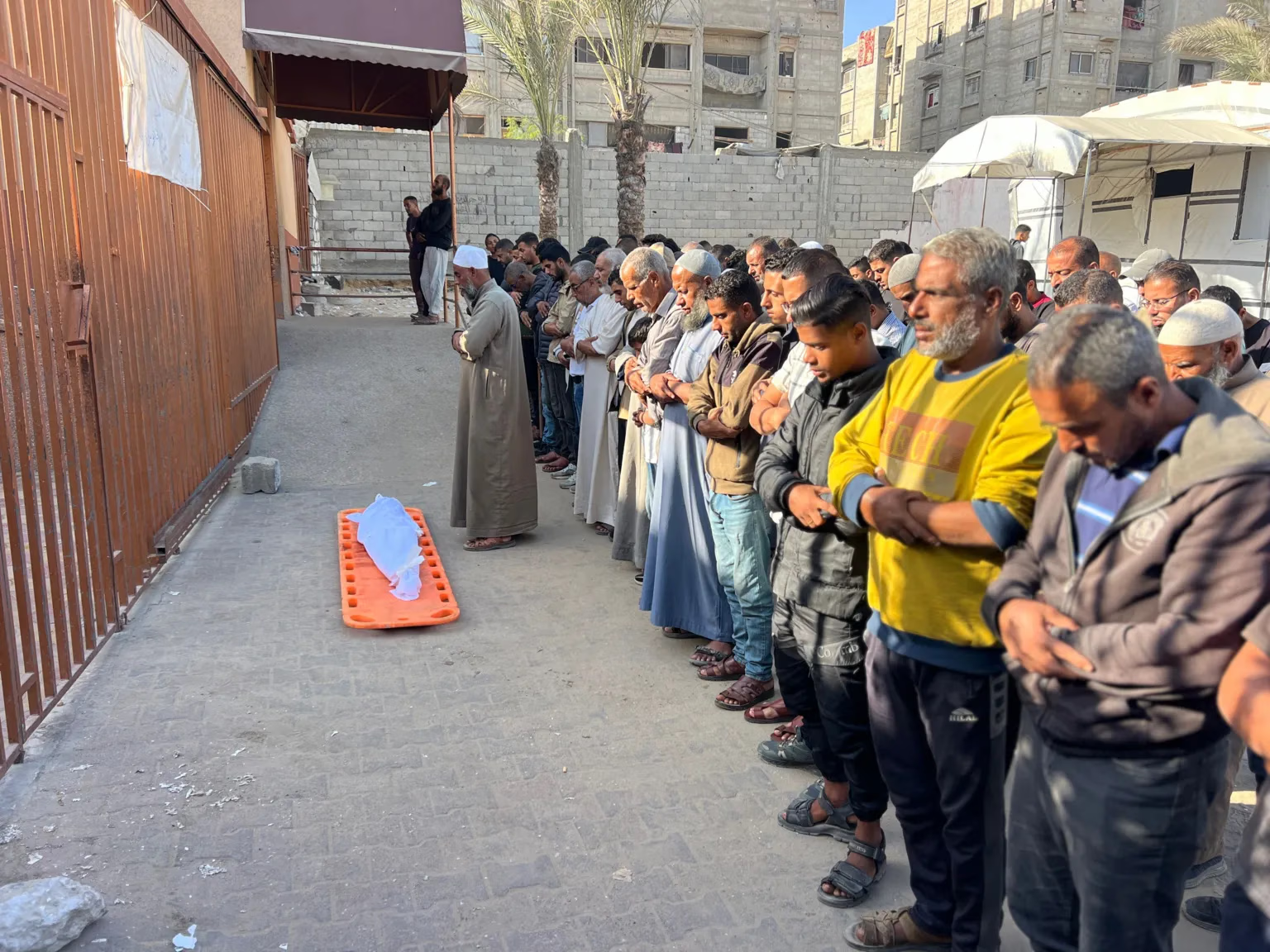Following the fragile truce in Gaza, thousands of severely ill and wounded people remain in need of urgent medical evacuation. The World Health Organization is urging Israel to accelerate patient transfers, but the borders remain closed: Tel Aviv insists that crossings will not reopen until Hamas fulfills the terms of the deal and returns the bodies of slain hostages.
In different wards of Nasser Hospital lie two ten-year-old boys—one paralyzed by Israeli fire, the other fighting a brain tumor. Following the fragile ceasefire, they are among roughly 15,000 patients who, according to the World Health Organization, require urgent evacuation for treatment abroad.
Ola Abu Said gently strokes her son Ammar’s hair. The family says he was inside their tent in southern Gaza when it was struck by a bullet fired from an Israeli drone. The projectile lodged between two vertebrae, leaving the boy paralyzed.
“He urgently needs surgery,” Ola says. “But it’s very complicated: doctors warn it could end in death, a stroke, or a brain hemorrhage. He needs an operation in a well-equipped hospital.” Gaza is far from that today—two years of war have brought its healthcare system to the brink of collapse.

Ahmed al-Jadd and his sister Shahd lost their father during the war.
Beside her younger brother’s bed sits Shahd al-Jadd. She says Ahmed has always been her source of strength through years of war and displacement. “He’s only ten, and when things got really hard, he would go out to sell water on the streets just to help the family a little,” Shahd recalls. A few months ago, the boy began showing troubling symptoms.
“One day his mouth twisted,” she says. “Then he complained, ‘Shahd, I have a headache.’ We gave him paracetamol, but soon his right arm stopped moving.”
The former student hopes her brother can be taken abroad for treatment. “We can’t lose him,” she says. “We’ve already lost our father, our home, and all our dreams. The truce gave us a tiny bit of hope—just one percent chance that Ahmed can be evacuated and saved.”
On Wednesday, the WHO organized the first medical convoy since the truce, which departed Gaza on October 10. Through the Israeli Kerem Shalom crossing, 41 patients and 145 companions were evacuated, with some transferred for treatment in Jordan.

Three-year-old Zayn Tafesh died of leukemia earlier this week.
A Voice Unheard

Peace in Gaza Begins with Chaos
The U.S. Seeks to Shape a Postwar Order as Hamas Holds Power and Risks Derailing the Deal

Israel Strikes Targets in Gaza, Citing a Ceasefire Violation
Hamas Accuses Tel Aviv of Provocation as Far-Right Ministers Call for Resuming the War
The organization is calling for a faster pace of evacuations for thousands of seriously ill and wounded people, including reopening the Rafah border crossing with Egypt, as was done previously. Israel, however, says it will keep the crossing closed until Hamas fulfills the terms of the ceasefire agreement and returns the bodies of slain hostages. Israel took control of the Palestinian side of the border in May 2024 and has kept it closed since.
At a press conference on Thursday, WHO Director-General Tedros Adhanom Ghebreyesus stressed that “the most effective measure” would be to allow patients from Gaza to receive treatment in the occupied West Bank, including East Jerusalem, as was the practice before the war.
Earlier, senior EU officials and foreign ministers from more than 20 countries, including the United Kingdom, had called for this measure, pledging “financial assistance as well as personnel and equipment.”
“Hundreds of patients could be treated quickly and effectively if this route were reopened to hospitals in East Jerusalem and the West Bank,” says Fadi Atrash, head of Augusta Victoria Hospital on the Mount of Olives.
“We can receive at least 50 patients a day for chemotherapy and radiotherapy, and more for surgical procedures. Other hospitals could perform dozens of operations.

International organizations are struggling to increase the number of evacuations.
Sending patients to East Jerusalem is the closest and most rational option: we have established mechanisms, speak the same language, share the same culture, and in many cases already have their medical records. Gazans were treated here for more than a decade before the war,” the doctor explains.
After the Hamas attack on October 7, 2023, Israel said it would no longer allow patients to cross for security reasons, noting that the main Erez border checkpoint had been attacked by militants.
According to Gaza’s Health Ministry, which is controlled by Hamas, by August 2025 at least 740 people—including nearly 140 children—had died while waiting to be evacuated for treatment.
Ahmed al-Farra, head of pediatrics and the maternity ward at Nasser Hospital, speaks of a deep sense of helplessness:
“There is nothing harder for a doctor than knowing the diagnosis but being unable to conduct the necessary tests or prescribe treatment,” he says. “It happens all the time, and unfortunately we lose patients every day because of the lack of resources.”

Funeral of eight-year-old Saadi Abu Tahi, who died this week of stomach cancer.
Over the past week, the hospital courtyard has seen the funeral of eight-year-old Saadi Abu Tahi, who died of intestinal cancer.
The next day, three-year-old Zayn Tafesh and eight-year-old Luay Dweik also passed away—both from hepatitis.
Without decisive action, many more people in Gaza will be denied even a chance at life in peace.
